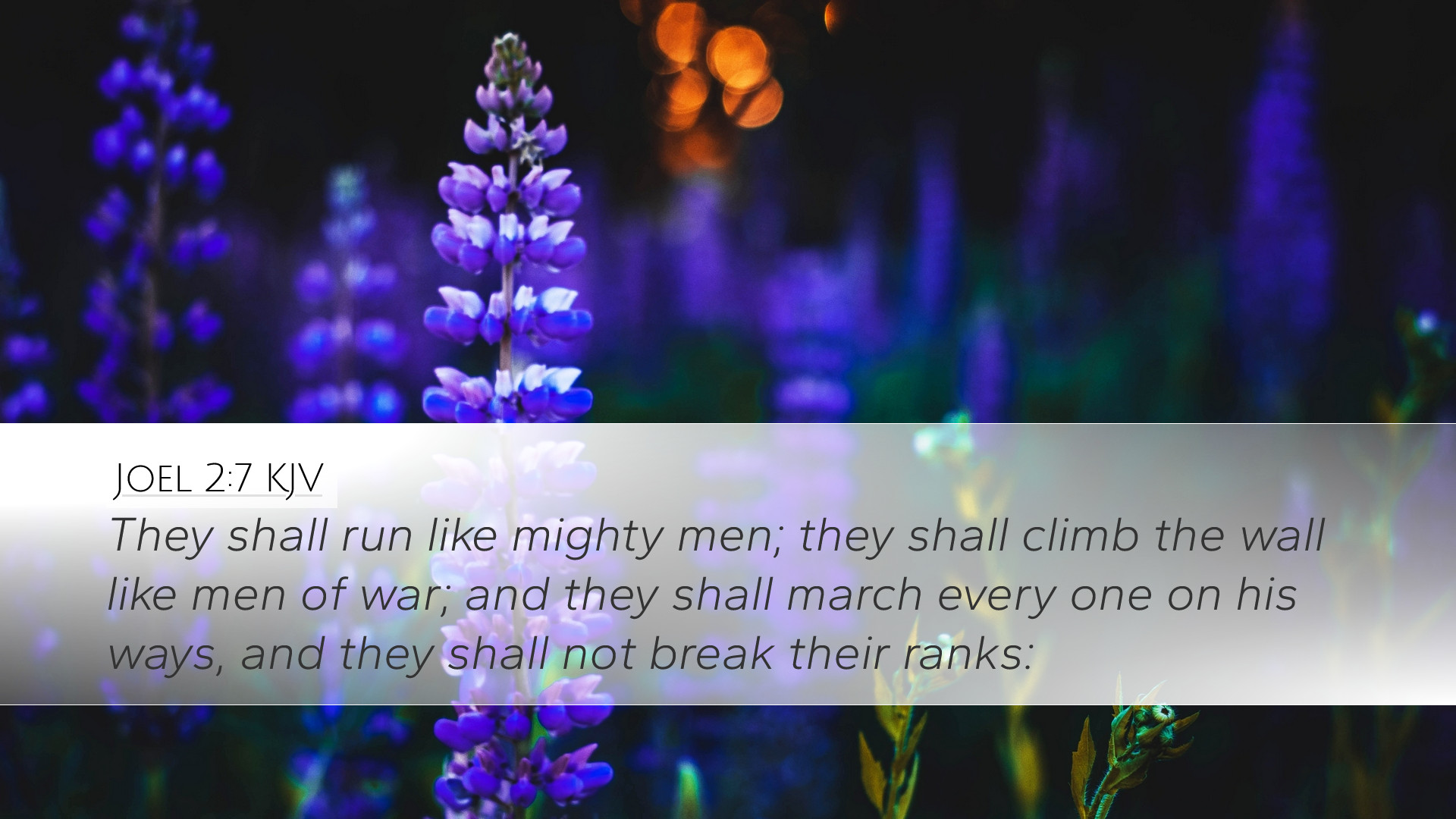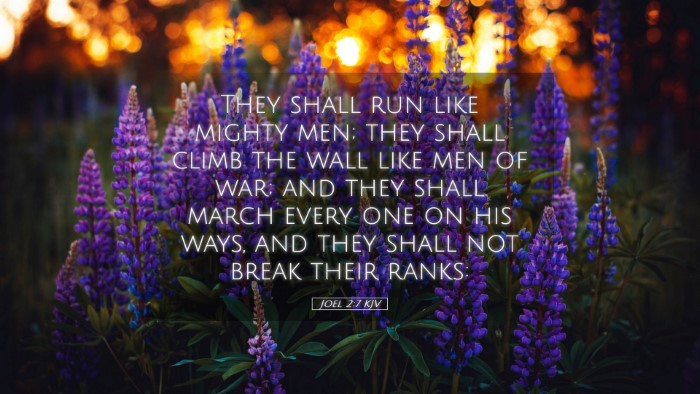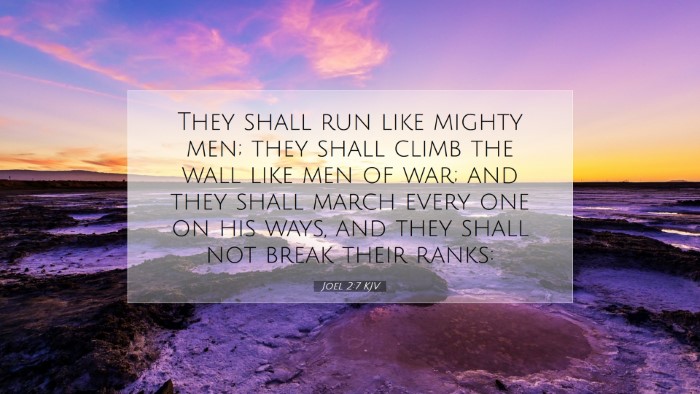Commentary on Joel 2:7
Contextual Overview
The Book of Joel emerges from the context of a devastating locust plague that has ravaged the land, serving as a divine message regarding judgment and restoration. Joel, a prophet of the southern kingdom of Judah, calls the people to repentance and a return to God, foretelling both imminent judgment and the hope of future restoration.
Verse Analysis
Joel 2:7 states, "They run like mighty men; they climb the wall like men of war; and they march every one on his ways, and they break not their ranks." This vivid imagery illustrates the ferocity and unyielding nature of the invading locusts, which are employed as a metaphorical instrument of God's judgment.
Commentary Insights
Matthew Henry's Commentary
Matthew Henry emphasizes the organized and unstoppable nature of the locusts, likening them to seasoned soldiers. He notes that their behavior exemplifies discipline and strength, reflecting a terrifying army that moves in unison. This running like "mighty men" indicates not only fearlessness but also a warning to the people of Judah regarding the impending judgment. Such powerful images serve to call the people to earnest repentance, as they are capable of wreaking havoc through their sheer numbers and coordinated attack.
Albert Barnes' Notes
Albert Barnes provides an in-depth examination of the military connotation in Joel's imagery. He notes that the locusts, resembling an army, are described in such a way to emphasize their mission-like precision and strength. Each locust is characterized by its relentless pursuit, climbing over obstacles with ease and maintaining unity in their ranks. Barnes draws a parallel between the locusts and an army that God uses as a tool of judgment, invoking fear and the necessity for communal repentance among God’s people.
Adam Clarke's Commentary
Adam Clarke highlights the severity of the judgment depicted through this verse. He reflects on the chaotic yet orderly nature of the invasion, suggesting that while the locusts may seem chaotic in their devastation, they function with an eerie sense of purpose that mirrors the judgment of God. Clarke elaborates on the implications of this military imagery, citing that the locusts breaking not their ranks symbolizes the strength and efficiency of divine judgment, which will not be thwarted. His analysis encourages readers to recognize the spiritual significance behind the locusts as agents of divine will, prompting introspection and a genuine return to faith.
Theological Significance
This verse not only depicts the immediate physical threat posed by the locusts but also invites deeper theological reflection on the nature of God's judgment. The organized assault of the locusts serves as a reminder of God's sovereignty and the seriousness of sin. It challenges believers to consider the alignment of their lives with God's standards, highlighting that the absence of repentance opens the door to divine discipline.
- Judgment and Hope: Despite the ominous portrayal, the book of Joel is also saturated with messages of restoration and hope. Even in the midst of judgment, God extends an invitation to return to Him.
- Discipline for Repentance: The imagery serves to provoke a response; the behavior of the locusts is a clarion call to acknowledge the seriousness of sin and the necessity of communal repentance.
- God's Sovereignty: The specific representation of the locusts as an unstoppable military force accentuates the belief that nothing can thwart God's purposes, serving as a reminder that all creation is subject to His will.
Practical Applications
For pastors, theologians, and students of the Bible, Joel 2:7 offers foundational insights that can be applied in various ways:
- Utilizing the vivid imagery of locusts can aid in preaching about the consequences of sin and disobedience.
- This passage can serve as a basis for discussions on the importance of communal repentance and seeking God during times of crisis.
- Encouraging believers to recognize God's active role in both judgment and mercy, leading to deeper spiritual engagement and a commitment to personal and communal piety.
Conclusion
Joel 2:7 serves not merely as a description of a natural disaster but as a compelling metaphor for understanding God's judgment on sin. The insights from these commentaries serve as theological reflections that encourage modern readers to apply their understanding of this text, fostering spiritual growth through the acknowledgment of God’s sovereignty and the call to repentance.


